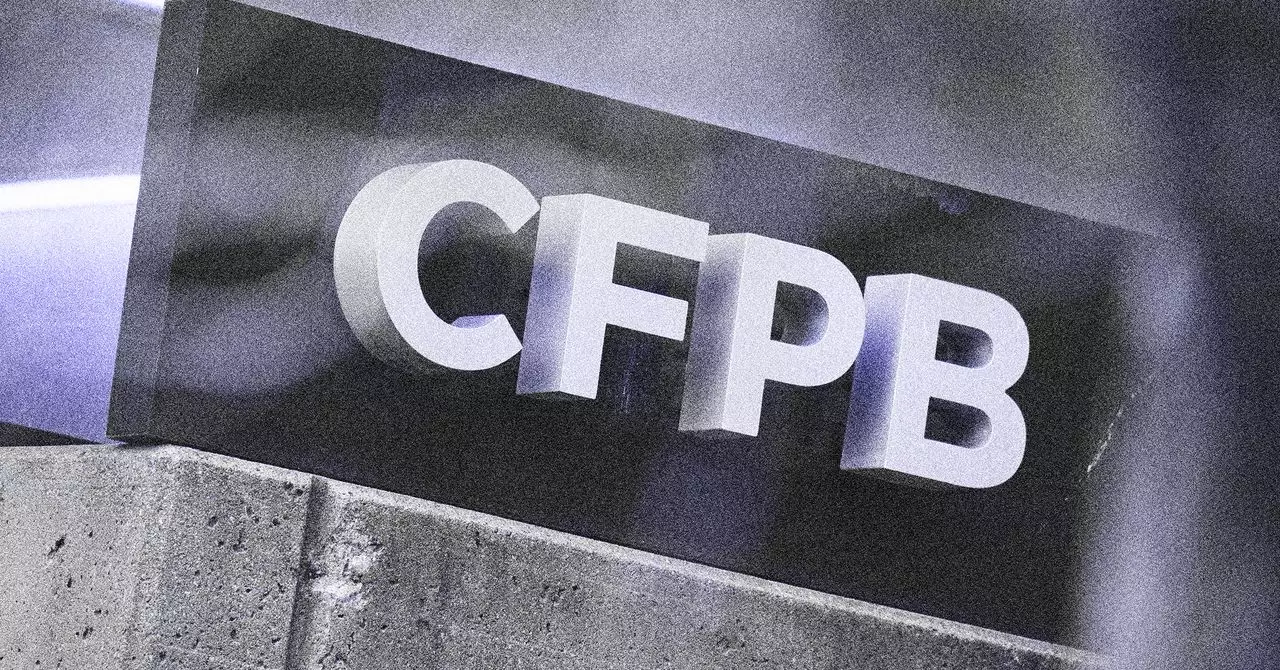In a significant twist in the saga surrounding the Consumer Financial Protection Bureau (CFPB), over 1,400 employees whose livelihoods were under threat received an unexpected reprieve from impending layoffs. This momentous decision by federal Judge Amy Berman Jackson has temporarily halted what would have been devastating job losses affecting approximately 90% of the agency’s workforce. The Trump administration, in its push to dismantle this independent regulator, now faces a critical juncture as it must provide more substantial evidence supporting the layoffs.
The urgency of this judicial intervention is amplified by the timeline presented to CFPB employees, who were informed of their impending termination just 48 hours before the scheduled layoffs. This lack of notice and clarity raises profound questions about the ethical and procedural aspects of such sweeping job eliminations. Judge Jackson’s ruling grants a crucial extension, allowing employees to remain in their positions until a hearing on April 28, illuminating the ongoing struggle for employee rights and due process in government operations.
The Role of the CFPB in Protecting Consumers
Since its inception in 2010, the CFPB has played an indispensable role in safeguarding consumer interests against corporate malfeasance. The agency has been instrumental in addressing issues such as egregious bank fees, discriminatory lending practices, and various scams targeting vulnerable populations. However, criticism from conservative factions has emerged, labeling this regulatory framework as overreaching and a hindrance to businesses’ operational freedom. This ideological clash underscores the contentious nature of regulatory oversight in contemporary America, where the balance between consumer protection and corporate interests remains precarious.
There are also significant implications arising as a result of the potential dismantling of the CFPB. For instance, recent communications from agency leaders indicated that critical cases regarding medical debt, student loans, consumer data, and digital payments would face deprioritization if layoffs proceeded. This directly hints at a concerted effort not just to eliminate jobs but to dilute the bureau’s mission of protecting consumers at a time when many are still reeling from the financial effects of the pandemic.
Workplace Culture Under Fire: A Troubling Account
Recent court filings have unveiled troubling testimonies from within the CFPB itself. An anonymous employee claimed that Gavin Kliger, a member of Trump’s so-called Department of Government Efficiency, exerted tremendous pressure on his team to accelerate the layoff notification process, referring to his colleagues in derogatory terms. Such accounts are alarming as they shine a light on the workplace culture at a pivotal government agency, raising ethical questions about leadership styles in high-stakes environments. The manner in which management handles employee relations not only affects morale but also reflects on the broader competence of an agency tasked with consumer protection.
Moreover, the response from other senior officials at the agency suggests a methodical effort to justify the layoffs. Mark Paoletta, the agency’s chief legal officer, indicated that a “line-by-line” analysis concluded that only about 207 employees were necessary to fulfill the agency’s mandated duties. This quantitative approach raises significant ethical considerations regarding the true needs of the CFPB and whether job eliminations would genuinely serve the public interest or merely execute political agendas.
The Ripple Effects of Regulatory Rollbacks
As the CFPB faces these tumultuous changes, the ramifications extend far beyond its walls. The agency’s dismantlement serves as a bellwether for broader regulatory trends across federal agencies. If the CFPB falls, it could set a dangerous precedent for how agencies operate in the future, particularly ones that exist to safeguard public welfare.
The tension between regulatory oversight and the free market will undoubtedly continue to fuel debate in legislative chambers, boardrooms, and households across the nation. Industry giants clamoring for less oversight view the agency’s constraints as burdensome, yet the consequences of insufficient regulation are evidenced by past financial crises. Striking the right balance between allowing businesses to thrive while protecting consumers remains a crucial challenge that lawmakers must address head-on.
Amid this backdrop, the ongoing fight sparked by Judge Jackson’s ruling highlights a significant moment for federal workers and the consumers they serve. The persistence of dedicated employees stands in stark contrast to the dismissive attitude of those seeking a swift dismantling of critical protections. The outcome of upcoming hearings could define not just the fate of the CFPB but also the extent of protections available to consumers nationwide, underscoring the importance of vigilance and advocacy in the quest for equitable regulation.

